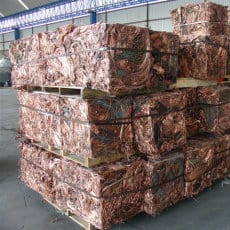Junkyard Planet Tells the Story of Scrap Recycling Around the World
I’ve been enjoying reading a book I heard about after someone left a comment on Facebook. It’s Junkyard Planet: Travels in the Billion-Dollar Trash Trade, and was written by Adam Minter, who has a particularly relevant background for his topic. Minter grew up in a family of scrap dealers, and he learned the vernacular, the trends, and the business from top to bottom as he watched his father sink into alcohol and drugs while the business changed over the years.
Minter loves the arcane little details of the scrap business, such as the many tricks people use to try and fool the scales. These include putting sand inside radiators, or rocks inside crushed cars, packing bricks deep within a bale of recycled newsprint.
The other aspect of the worldwide scrap business are the names scrappers use for various types of metal. Honey, for example, is brass, whether it’s old faucets and plumbing pipes, or small pieces spun off from a milling machine at a car factory. Barley is clean wire, unlike the frequently recycled Christmas tree lights, that are chopped up into tiny pieces to separate the copper wire from the green insulation.
“Talk” means aluminum copper radiators, and “Lake” are brass arms and rifle shells, clean fired, “Taboo” is mixed low-copper aluminum clippings and solids.
What is surprising in the book is how important our exported scrap metal is to markets and manufacturers around the world. Minter visits a region of India, for example, that has thousands of brass casting  shops that use exclusively recycled honey, or brass, that they melt down. But it’s also about the cruelty of the markets.
shops that use exclusively recycled honey, or brass, that they melt down. But it’s also about the cruelty of the markets.
Every time scrap is shipped from the US abroad, it’s usually in a 60,000-pound shipping container. It costs about 2 cents per pound to ship scrap to China’s Pearl River Delta, and their laborers there earn about $250 per month. In India, there are thousands of workers who will do the same work for $80 per month, yet few containers are sent to India from the US. That’s because it costs 7 cents per pound to ship it there.
So instead of getting scrap from the US, which is considered “the Saudi Arabia of scrap,” Indian scrap dealers get containers from Dubai, Saudi Arabia, and other Middle Eastern countries who are as wasteful as the US, generating their own mountains of scrap which is quickly recycled and ultimately returned to the first world in a different form.
